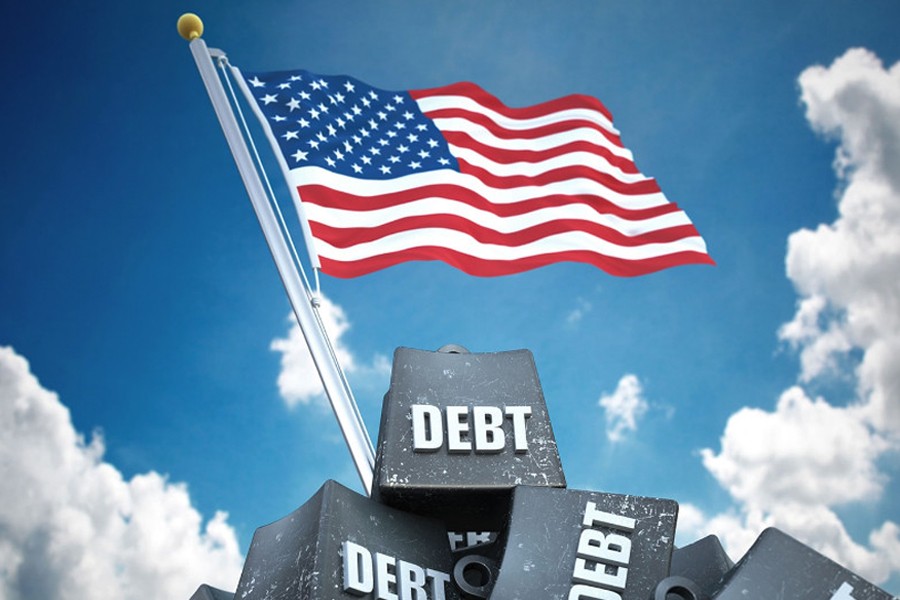The US public debt has reached a record high of more than 22 trillion US dollars, according to data released by the US Treasury Department.
Total outstanding public debt stands at $22.01 trillion as of Feb. 11, the Treasury Department’s daily statement showed Tuesday.
"The national debt has now eclipsed 22 trillion dollars, as we added $1.0 trillion in debt over just the last 11 months," said Michael A Peterson, CEO of the Peter G. Peterson Foundation.
"Reaching this unfortunate milestone so rapidly is the latest sign that our fiscal situation is not only unsustainable, but accelerating," Peterson said in a statement of the, a non-partisan organisation.
Analysts said the Trump administration's $1.5-trillion tax cut and increased government spending have fuelled the rapid increase in budget deficits and public debt, reports Xinhua.
The Congressional Budget Office (CBO) last month estimated that federal budget deficit is about $900 billion in 2019 and exceeds $1.0 trillion each year beginning in 2022.
Because of persistently large deficits, the public debt is projected to grow steadily, reaching 93 per cent of US gross domestic product (GDP) in 2029 and about 150 per cent of US GDP in 2049, the CBO said.
"As we borrow trillion after trillion, interest costs will weigh on our economy and make it harder to fund important investments for our future,” Peterson said.
"We already pay an average of $1.0 billion every day in interest on the debt, and will spend a staggering $7 trillion in interest costs over the next decade," he said.
Peterson said, "We must put our fiscal house in order and begin to manage our national debt."
Former Federal Reserve Chairman Alan Greenspan has warned that the rising public debt in the United States could lead to the next economic recession.
During an interview with Bloomberg Television in November 2018, Greenspan said he saw "a lot of talk but no realistic movement" to address the problems of rising deficits and debt, which could drag the US economy into a period of stagflation with rising inflation and high unemployment.
Greenspan believed that the next US economic recession is going to come "sometime" and it's going to be driven by "dramatically" rising debt.


